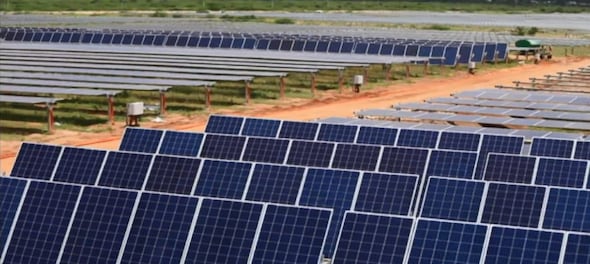
The Union Budget 2020 had something for almost everyone including the renewable industry. Tax reforms, budget allocations across categories and the promise of a simplified GST scheme made it appear holistic on the surface, but the budget proved to be a mixed bag without any radical solutions to the dwindling economy.
The expansion of ‘PM KUSUM Yojna’ would not only add to the solar power generation in the country but it would also aid the farmers in attaining a better livelihood. The grid-connected solar farms should help in reducing the dependency on thermal and other non-renewable sources of energy, and the installed capacity in solar should grow significantly with the installation of solar panels in the land adjacent to railway tracks as proposed. The lower tax rates to utilities and power producers will encourage inclination towards renewable energy.
Further, the finance minister announced that the power and renewable sector would together be allocated Rs 22,000 crore, but the question arises that how and where will this humongous budget be utilised. Furthermore, the Rs 4400 crore fund set aside for climate change management is in line with the government’s commitment to the Paris agreement. Air pollution and climate change have become a greater health concern in the past few years and this move by the government should help address these growing challenges in the future. A notable announcement in the direction was also shutting down old thermal power plants, which may add impetus to adding solar power, as a clean source of energy.
One key point the finance minister did address in her speech was the financial stress that discoms have been facing. The government made several favourable announcements such as the replacement of existing meters with smart meters in the next three years across the country. This should motivate discoms to provide better services at competitive prices and lead to the relaxation in the sudden changes to policies in key aspects like Net Metering.
The finance minister also tinkered with the customs duty tariff structure on solar cells and modules by increasing it to 20 percent. However, this may not impact the solar system costs immediately as the effective Custom Duty is still nil (0 percent) due to the prevailing exemption. If and when this existing exemption is completely removed, which is unlikely, then the effective rate on imports of solar cells and modules which is currently 20.75 percent (15 percent SGD + 5 percent IGST) will be revised to 26 percent (20 percent BCD + 5 percent IGST). This would lead to an increase of approximately 5 percent in solar system costs thereby increasing the solar tariffs. Also, there is ambiguity over the continuance of the existing 15 percent Safeguard Duty on solar panels till July 29, 2020. Post this date, the SGD notification anyways would lapse. It remains to be seen how the situation with customs duties turns out in the end, as more clarity and details emerge.
Focus on MSME sector
Moreover, the budget’s focus was the MSME sector. As per the announcement, a new logistics policy will be laid down soon in order to increase competitiveness among MSMEs. This scheme will play a crucial role in boosting the ease of doing business. The government has tried to lure new energy companies through corporate tax reduction, but it is unclear how this will benefit existing businesses.
Overall, the budget was a lukewarm affair that left more to be desired. The government allotted Rs 2,516 crore for the solar sector. The good news is that the solar sector again seems to be a focus area for the government but there was no policy announcement aimed at inducing investments in the sector. Moreover, there was nothing to make it easier for the end consumers like industries and commercial buildings to solarise thereby keeping this biggest solar deployment opportunity untapped. A lot more is left to be done if the government desires to reach the 100 GW target of solar power generation by 2022.
Gagan Vermani is the Founder and CEO of MYSUN.
First Published: Feb 7, 2020 6:00 AM IST
Check out our in-depth Market Coverage, Business News & get real-time Stock Market Updates on CNBC-TV18. Also, Watch our channels CNBC-TV18, CNBC Awaaz and CNBC Bajar Live on-the-go!


EVM row: Meet Ravindra Waikar, Shiv Sena MP at the centre of controversy
Jun 17, 2024 1:26 PM
EVM unlocking controversy in Mumbai North West Lok Sabha seat — What we know so far
Jun 17, 2024 10:25 AM

